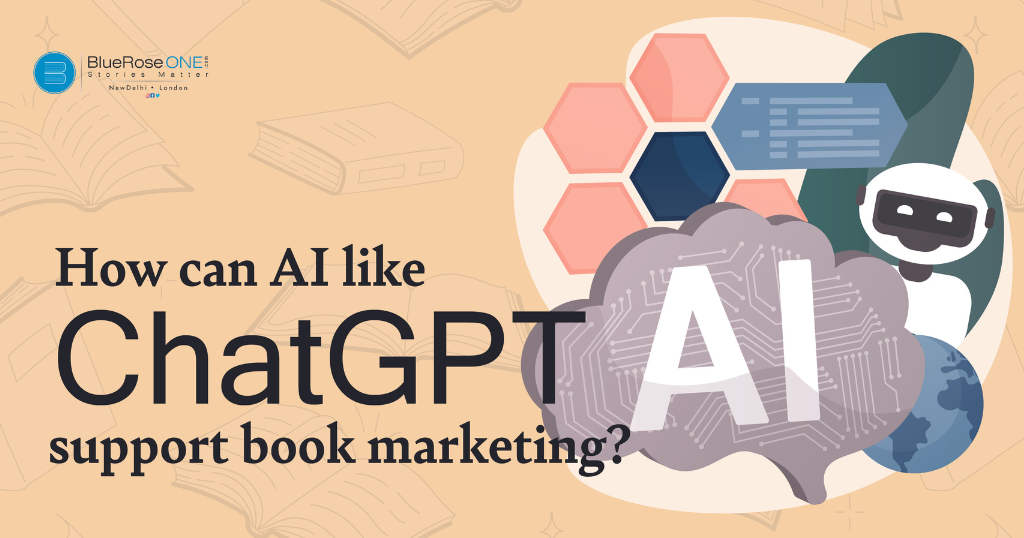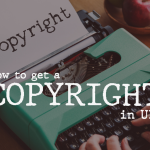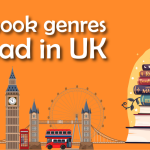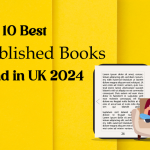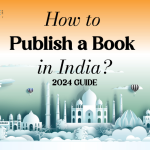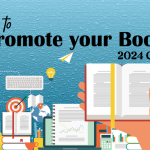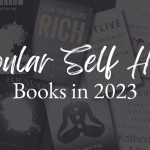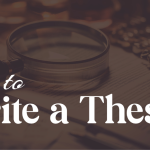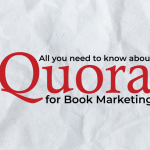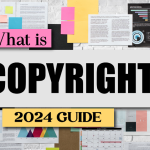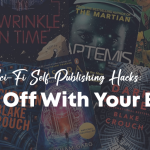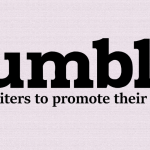The landscape of book marketing has evolved significantly in the digital age, and the integration of AI technology has emerged as a powerful tool for authors and publishers. Among these technologies, ChatGPT stands out as a versatile and impactful AI model that revolutionises various aspects of book marketing.
Section 1: Personalised Audience Engagement
Tailored Recommendations:
ChatGPT’s capacity to analyse vast amounts of data enables it to discern intricate patterns in reader behaviour, preferences, and demographics. By understanding the nuances of individual interests and reading habits, it excels at offering personalised book recommendations.
Imagine a reader interacting with an AI-powered chatbot on a book retailer’s website. As the reader explores various genres and authors, ChatGPT processes this information in real-time. It analyses the genres the reader shows interest in, the authors they prefer, and even their interaction patterns on the site. Leveraging this data, ChatGPT can suggest highly tailored book recommendations.
For instance, if the reader has shown a penchant for psychological thrillers and has previously engaged with works by a specific author, ChatGPT can intelligently recommend books from similar authors or within the same genre. This level of personalisation enhances the chances of the reader discovering new books that align closely with their tastes, thereby increasing engagement and potential sales.
Interactive Experiences:
ChatGPT’s capabilities extend beyond mere recommendations; it can also generate interactive experiences that enrich the reader’s engagement with authors and their works. These experiences include virtual book readings, quizzes, or personalised storytelling sessions.
Let’s consider a scenario where an author uses ChatGPT to conduct virtual book readings. Instead of traditional in-person events, the author hosts a live reading session on social media or a dedicated platform. With ChatGPT’s assistance, the author can engage directly with the audience, allowing them to ask questions, share thoughts, or even participate in the storytelling process.
ChatGPT assists by generating dynamic, conversational content based on audience input. For instance, during a storytelling session, if the audience suggests a particular plot twist or a character name, ChatGPT can seamlessly incorporate these suggestions into the ongoing narrative, creating an interactive and personalised experience for the audience.
Similarly, authors can leverage ChatGPT to design quizzes or interactive stories related to their books. This fosters a deeper connection between the author’s work and the audience. By tailoring content based on the audience’s responses, ChatGPT ensures that each interaction feels unique and engaging.
In essence, ChatGPT’s ability to create personalised and interactive experiences transcends traditional marketing approaches. It enables authors to forge stronger connections with their audience, turning passive readers into active participants in the literary experience. This, in turn, cultivates a loyal fan base and boosts the visibility and appeal of an author’s work in the highly competitive book market.
Section 2: Content Creation and Optimisation:
AI-Generated Content:
ChatGPT’s ability to comprehend language nuances and generate coherent text makes it a valuable tool for crafting various marketing materials, including book blurbs, press releases, and social media posts.
Consider an author preparing to launch a new book. With ChatGPT’s assistance, they can create compelling book blurbs tailored for different audiences. By inputting key information about the book—such as its genre, themes, and unique selling points—ChatGPT can generate multiple versions of concise and engaging blurbs. For example, it can craft a blurb that appeals to mystery enthusiasts by emphasising the suspense elements, while another blurb could focus on the book’s emotional depth to attract a different segment of readers.
Press releases, crucial for garnering media attention, can also benefit from ChatGPT’s capabilities. By providing details about the book launch, the author’s background, and notable aspects of the storyline, ChatGPT can assist in composing press releases that capture journalists’ interest and effectively convey the book’s significance.
Moreover, ChatGPT can aid in crafting social media posts that resonate with diverse audiences. For instance, it can generate engaging tweets, Facebook updates, or Instagram captions tailored to specific platforms and demographics. By understanding the tone, language style, and preferences of various social media users, ChatGPT ensures that the content aligns with the expectations of each platform’s audience.
SEO and Metadata Enhancement:
Optimising book metadata and refining descriptions are crucial for improving a book’s visibility online. ChatGPT’s capabilities extend to suggesting keywords, refining descriptions, and enhancing metadata to boost a book’s discoverability across search engines and online platforms.
Let’s consider an author seeking to enhance their book’s online presence. By providing ChatGPT with the book’s title, genre, and a brief summary, the AI can suggest relevant keywords that potential readers might use in search queries. Incorporating these keywords into the book’s metadata, descriptions, and promotional materials can significantly enhance its visibility on search engine results pages (SERPs) and online bookstores.
Furthermore, ChatGPT can assist in refining book descriptions to maximise their impact. By analysing existing descriptions or summaries and suggesting improvements, such as clearer language, more compelling hooks, or formatting enhancements, ChatGPT ensures that the book’s description is captivating and effectively communicates its essence to potential readers.
Section 3: Data-Driven Insights and Analytics:
Audience Analysis:
ChatGPT’s prowess in analysing reader behaviour and preferences is instrumental in understanding audience dynamics. Through its ability to process and interpret vast amounts of data, it can derive insights from reader interactions, reviews, and engagement patterns across various platforms.
For instance, consider an author seeking to promote a mystery thriller. ChatGPT can analyse reader interactions on social media, book forums, and even reviews of similar titles to identify specific preferences within the mystery genre. It can be discerned whether readers are inclined towards classic whodunits, psychological thrillers, or crime procedurals. This insight enables authors and publishers to tailor marketing strategies, including crafting compelling book descriptions, designing targeted campaigns, or even selecting the most appealing cover art that resonates with the identified audience preferences.
Moreover, ChatGPT’s analytics can help identify niche segments within broader genres. For example, it might detect a rising interest in mystery thrillers set in specific locations or featuring unique protagonists. Armed with this information, authors can create content tailored to these niche preferences, thereby enhancing their chances of reaching and engaging with these specific reader segments.
Predictive Analytics:
ChatGPT’s predictive analysis capabilities extend beyond understanding current trends to forecasting future market behavior. By analysing historical data, user interactions, and market trends, it can provide predictive insights into potential book performance.
For instance, an author preparing to launch a science fiction series can leverage ChatGPT’s predictive analytics to forecast the series’ reception. By examining data on readers’ responses to similar series launches, it can provide insights into potential sales figures, reader engagement, or even the most opportune times for book releases. This empowers authors and publishers to make informed decisions regarding marketing budgets, release schedules, and promotional strategies, optimising their efforts for maximum impact.
Furthermore, predictive analytics can assist in identifying emerging trends and anticipating shifts in reader preferences. For instance, if ChatGPT detects a surge in interest in a specific sub-genre or thematic element within science fiction, authors can pivot their marketing strategies accordingly, aligning their content with these emerging trends to capture reader attention.
Section 4: AI in Social Media Marketing:
Targeted Advertising:
ChatGPT’s ability to analyse vast amounts of data enables precise targeting of advertising campaigns on social media platforms. By understanding user behaviour, preferences, and demographics, it helps authors and publishers reach specific audiences more effectively.
Consider an author launching a young adult fantasy novel. ChatGPT can analyse the preferences of users who engage with similar genres, identifying their age groups, reading habits, and interests. Leveraging this data, the AI can assist in crafting targeted ads that resonate with these particular segments of potential readers. For instance, it might suggest different ad visuals or messaging tailored to appeal to younger readers fascinated by magical worlds versus those intrigued by complex character-driven narratives.
Moreover, ChatGPT’s analysis of social media trends and engagement patterns enables the optimisation of ad campaigns in real time. By monitoring responses to various ad formats or content, it can recommend adjustments to maximise engagement, ensuring that ad spend is directed towards the most effective strategies.
Chatbots and customer service:
ChatGPT-powered chatbots serve as invaluable tools for improving customer service and engagement on social media platforms. These chatbots offer immediate and personalised assistance to users, enhancing their overall experience.
For instance, imagine a publishing house implementing a chatbot on its Facebook page. When users inquire about book releases, formats, or even specific author-related queries, the chatbot, driven by ChatGPT, can instantly provide accurate and helpful responses. It could offer book recommendations based on user preferences, provide details about ongoing promotions or events, and even guide users to purchase links or additional resources.
Moreover, these chatbots contribute to enhanced engagement by initiating conversations and nurturing relationships with potential readers. For example, they could initiate quizzes or interactive storytelling sessions, encouraging users to participate and generating interest in upcoming book releases or author events.
Additionally, ChatGPT-powered chatbots continuously learn from user interactions, improving their responses over time. By analysing user queries and feedback, they adapt to provide more accurate and relevant information, thereby enhancing the overall customer service experience.
Read: How to pick between Paperback, Hardcover, eBook – What’s best for you?
In conclusion, the integration of ChatGPT into book marketing strategies brings unparalleled opportunities for authors and publishers. Its capabilities in personalised audience engagement, content creation, data analytics, and social media marketing offer a data-driven approach that enhances book visibility, reader engagement, and overall marketing effectiveness in the dynamic literary landscape.

